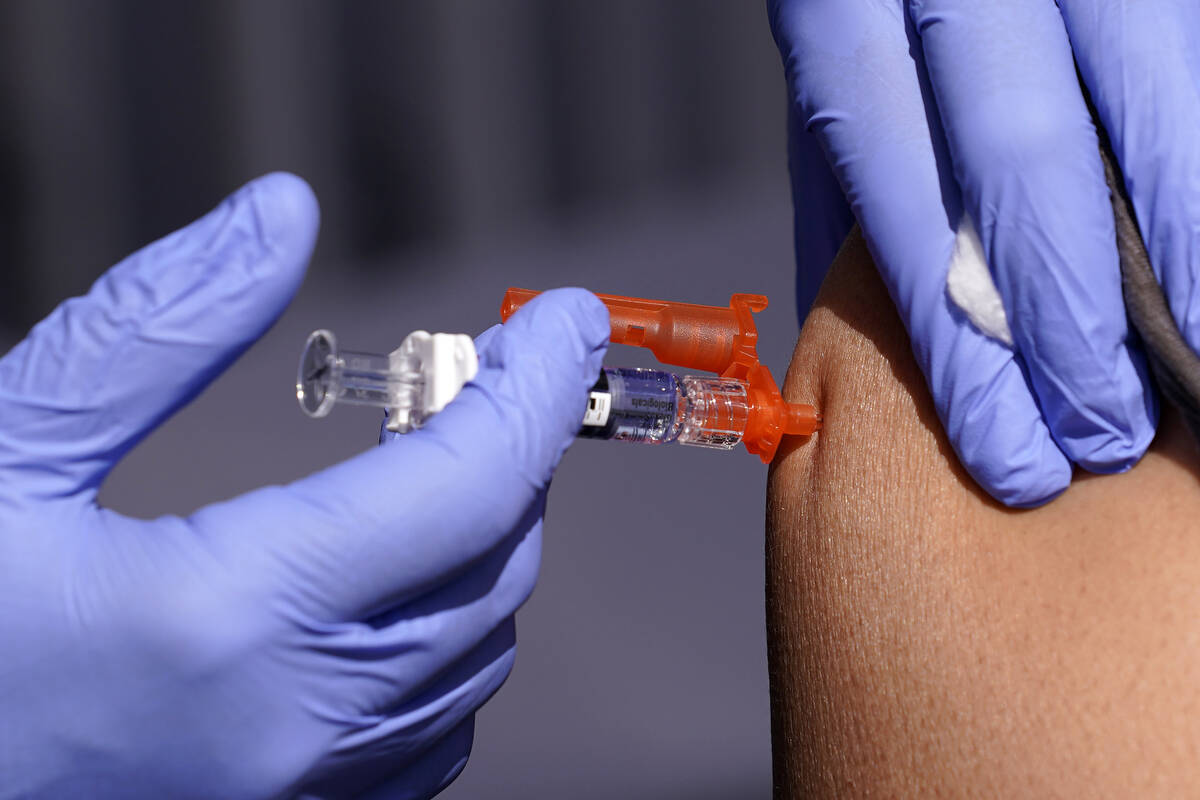Who should get the latest COVID-19 vaccine?
Question: The Food and Drug Administration this fall approved two new COVID-19 vaccines from Pfizer and Moderna. What are the recommendations for who should get it?
Answer: The Centers for Disease Control and Prevention has recommended the 2023-2024 COVID-19 (mRNA) vaccine for everyone 6 months and older.
The COVID-19 vaccine is strongly recommended for people who face the highest risk of experiencing complications from the virus. This group includes older people, those with compromised immune systems and chronic medical conditions, such as diabetes and heart disease, as well as very young children. If you are young and healthy, the vaccine may not benefit you as much, but you still should consider getting it if you live with someone in one of these categories or want to reduce the risk of a COVID-19 infection.
Overall, there is little to no harm in getting the vaccine for protection. For most of the population, the risks from the vaccine are much less significant than the risks from COVID-19 itself. While getting the vaccine does not prevent all COVID-19 cases, the latest vaccines aim to reduce the number of hospitalizations, severe illnesses and deaths from the virus.
Even if you have had COVID-19 previously or have been vaccinated, it is important to get the updated COVID-19 vaccine because the immunity from previous vaccines and infections decreases over time. Another benefit has to do with immune innovation — when the virus changes, it can escape the antibodies you have formed in reaction to the previous versions of the vaccine. By getting the updated vaccine, you are protecting yourself against the strains that are currently circulating.
The 2023-2024 COVID-19 vaccines produced by Moderna and Pfizer target a different strain of COVID-19 than was in the original vaccine. Think influenza vaccines — they are all flu vaccines, but the strains they protect against change year after year.
The updated vaccine targets the XBB.1.5 strain that has been circulating throughout the United States and most parts of the world since the start of 2023. The World Health Organization has labeled XBB.1.5 as the most transmissible omicron strain to date.
The updated 2023-24 vaccine is the only COVID-19 vaccine currently available. Essentially, with the approval of the new vaccine, the older vaccines have lost their approval.
Other methods to protect yourself from COVID-19 include getting enough sleep and exercise. Avoid highly crowded indoor spaces, and consider wearing a mask when you cannot avoid those situations. If you become sick, wear a mask to protect those around you and stay home to avoid exposing people at your workplace and elsewhere.
The COVID-19 vaccine and the influenza vaccine can be given at the same time. Keep in mind that there is no way to tell the difference between flu, cold, respiratory syncytial virus (RSV) or COVID-19 symptoms besides testing.
Go to vaccines.gov to find vaccination providers near you.
Dr. Priya Sampathkumar specializes in infectious diseases and occupational medicine with the Mayo Clinic in Rochester, Minnesota.
























